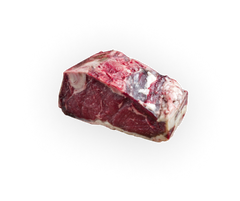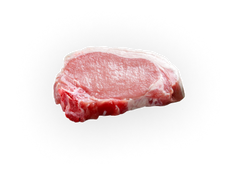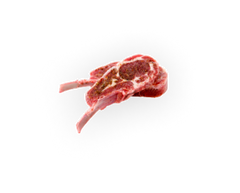In a world that is increasingly becoming aware of its environmental footprint, the "fork-to-table" concept is gaining momentum. While most people are familiar with the farm-to-table movement, where fresh, local produce and ingredients are sourced directly from farms to consumers' plates, fork-to-table is a more specialized focus on meats. It emphasizes the direct relationship between the consumer and the production of meat, where traceability, sustainability, and ethical sourcing take center stage.
Understanding Fork-to-Table Meats
Fork-to-table meats go beyond the traditional concept of meat procurement. They focus on the entire journey of the animal from its birth to when it reaches your plate. This involves transparency about where and how the animals are raised, what they are fed, and the ethical standards that guide their treatment. Fork-to-table practices often come from small-scale, sustainable farms that emphasize humane practices, minimal environmental impact, and a close connection between producers and consumers.
Unlike mass-market meats that often travel long distances from industrial farms, fork-to-table meats tend to be sourced from smaller, local farms, which usually adopt practices that align more with natural, organic, and humane farming methods. The meat is often sold directly to consumers through local butcher shops, farm markets, or even subscription services that deliver fresh cuts right to your door.
The Benefits of Fork-to-Table Meats
-
Sustainability
One of the main drivers of the fork-to-table movement is sustainability. Traditional meat production systems are heavily resource-intensive, contributing significantly to environmental degradation through deforestation, water pollution, and greenhouse gas emissions. In contrast, fork-to-table meat producers tend to emphasize regenerative agricultural practices, such as rotational grazing, which can help restore soil health and biodiversity. These farms also tend to use fewer chemicals and pesticides, benefiting both the environment and animal welfare. -
Ethical Practices
A core pillar of fork-to-table meats is animal welfare. Factory farming practices are often criticized for their treatment of livestock, where animals may be kept in crowded, unsanitary conditions, and raised in ways that prioritize efficiency over well-being. Fork-to-table farmers, however, are more likely to use methods that prioritize the ethical treatment of animals. This can include free-range pastures, access to fresh air, and slow, natural growth processes that allow animals to live healthier, less stressful lives. -
Transparency and Traceability
The fork-to-table approach also brings transparency to the table. Consumers know exactly where their meat comes from, how it was raised, and what it was fed. This kind of traceability not only gives consumers peace of mind but also helps foster trust between producers and consumers. Many local farms or smaller meat suppliers provide detailed information on their practices, which helps make informed choices easier. -
Better Taste and Quality
Many people who have switched to fork-to-table meats report a noticeable difference in taste and quality compared to mass-produced options. Animals raised in healthier, more natural environments tend to produce meat with a better flavor and texture. These meats are often fresher, as they don’t undergo long transport or excessive processing. Additionally, some consumers believe that meats raised without antibiotics or hormones taste better and are more nutritionally beneficial.
Challenges and Considerations
Despite the many benefits, fork-to-table meats are not without their challenges. They can be more expensive than mass-produced alternatives due to the increased cost of sustainable farming practices, smaller production scales, and more labor-intensive processes. Furthermore, the limited availability of such products in certain regions can make it difficult for some consumers to access fork-to-table meats.
The fork-to-table movement is more than just a trend – it's a commitment to better food practices that focus on sustainability, ethics, and quality. As consumers become more conscious of their food choices, embracing fork-to-table meats offers a way to support local farmers, promote animal welfare, and reduce the environmental impact of meat consumption. With greater demand for transparency and better quality meat, this movement will continue to evolve and shape the future of food production.










